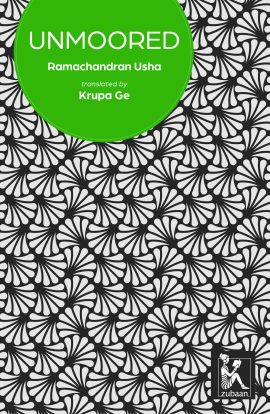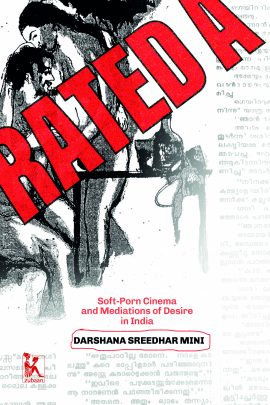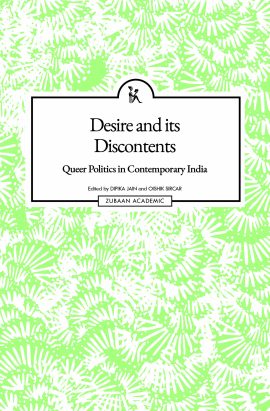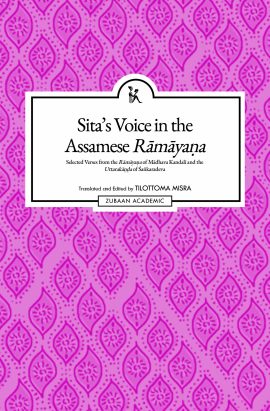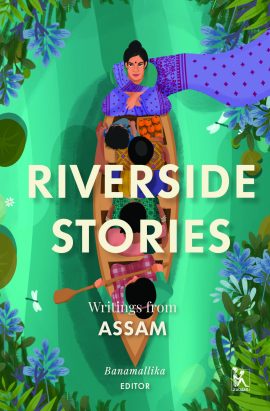No products in the cart.
Return To Shop
Log in / Sign in
Login
Register
Filter by price
Unmoored
₹ 280 – ₹ 395Price range: ₹ 280 through ₹ 395In Unmoored, Ramachandran Usha crafts an intimate exploration of migration and belonging. Three women—Ayesha, Indu, and Ameera—return to Chennai from the Gulf, each looking to reunite with the loved ones they left behind. Despite differences in religion, social status and age, they are also united in their quest for a true sense of home. Usha’s novella dwells on the seldom-told yet pervasive story of women who travel to the Middle East and beyond, driven by the need to secure their families’ futures.
The protagonists of the two short stories featured in this collection, ‘Khushka’, and ‘Success’, have much in common with the women of Unmoored, even as they grapple with crises of faith and finance.
______________________________________________________________________________________Ramachandran Usha has been writing in Tamil since 2003. She was awarded the second place in the KiVa Jagannathan Centenary Novel Award Competition for Karai Thedum Odangal (translated as Unmoored). She also won a short story competition held by Kalki and has been published widely in leading magazines and online journals.
Krupa Ge is a writer from Madras (Chennai). She is the author of a novel, What We Know About Her (2021) and a narrative non-fiction book, Rivers Remember (2019). Her reportage and cultural writings have appeared in Indian and international publications over the last 14 years.
Hidden Treasure
₹ 245 – ₹ 350Price range: ₹ 245 through ₹ 350Living on rent in a wealthy, religious house, Chintamoni spends her days holding together her ordinary, lower-class family. Nothing excites her in her marriage to an unremarkable man, while the shadow of her son’s heart disease looms over her austere life. When a secretive devotee of Ma Kali begins boarding in the house, Chintamoni realises that the man has been eyeing her. His arrival kindles her dormant desires, bringing her both love and money. But the events that should have changed her life for the better end up making it much worse. Hidden Treasure is the story of a woman—and of women—struggling to make something of their lives in a world run by men, money, and religion.
______________________________________________________________________________________
Since her exceptional debut novel, Shankini, Sangeeta Bandyopadhyay has written nine novels and over fifty short stories. With extraordinary women often leading her works, she traverses topics from gender and sexuality to religion and social commentary. Her writing is acerbic and unsettling, making her stories hard to put down or forget. Also a newspaper columnist and film critic, Bandyopadhyay lives and writes in Kolkata.
Ipsa S is a graduate student with a major in English, and a minor in History and Creative Writing. Their interests encompass gender, sexuality, and linguistics. The rigour of academia has nearly put them off creative work, but they continue to pursue writing in the one city and one college campus where they’ve spent twenty years of their life. They spend time reading anything and everything and nursing slightly unhealthy obsessions with cats and queer media.
Rated A: Soft-Porn Cinema and Mediations of Desire in India
₹ 490 – ₹ 695Price range: ₹ 490 through ₹ 695In the 1990s, India’s mediascape saw the efflorescence of edgy soft-porn films in the Malayalam-speaking state of Kerala. In Rated A, Darshana Sreedhar Mini examines the local and transnational influences that shaped Malayalam soft-porn cinema—such as vernacular pulp fiction, illustrated erotic tales, and American exploitation cinema—and maps the genre’s circulation among blue-collar workers of the Indian diaspora in the Middle East, where pirated versions circulate alongside low-budget Bangladeshi films and Pakistani mujra dance films as South Asian pornography. Through a mix of archival and ethnographic research, Mini also explores the soft-porn industry’s utilization of gendered labor and trust-based arrangements, as well as how actresses and production personnel who are marked by their involvement with a taboo form negotiate their social lives. By locating the tense negotiations between sexuality, import policy, and censorship in contemporary India, this study offers a model for understanding film genres outside of screen space, emphasizing that they constitute not just industrial formations but entire fields of social relations and gendered imaginaries.
______________________________________________________________________________________A model for future film scholars. The decade-long research that went into making this book is evident in its rich historical details, insightful conversations, and multisited fieldwork. Perhaps even more impressive is Darshana Sreedhar Mini's ability to pull together such vast and diverse material in a riveting story, so absorbing and beautifully written that I often felt like I was reading a novel. This exemplary work will produce lively discussions about film historiography, diaspora, stardom, authorship, and sexuality.—Monika Mehta, author of Censorship and Sexuality in Bombay Cinema, 2011In Rated A: Soft-Porn Cinema and Mediations of Desire in India, Darshana Mini takes readers on a truly fascinating exploration of Malayalam soft-porn cinema that emerged in the 1980s and captivated millions of viewers across India and the Middle East. Extensive archival and ethnographic research reveals the local and global influences that shaped the genre, the social and gendered dynamics of the industry, and the complex politics of sexuality and censorship in contemporary India. By challenging the dominant narratives of pornography as a Western phenomenon, this book provides a new model for studying soft-core film genres in diverse cultural contexts.—Clarisa Smith, One for the Girls! The Pleasures and Practices of Reading Women’s Porn(2007), Co-editor Porn Studies JournalRated A is a fascinating cultural history of Malayalam soft porn cinema, and moreover of its afterlives - how it is remediated across a range of sites, reverberating in the cultural imagination. In the unfolding of that history, Darshana Mini shows how soft porn and the debates and desires that it provokes are entangled with the building of gender, sexuality, politics, and social life. A major new contribution to the study of pornographies.—Feona Attwood, author of Sex Media (2017) and Co-editor of Porn Studies Journal______________________________________________________________________________________DARSHANA SREEDHAR MINI is Assistant Professor of Film at the University of Wisconsin–Madison and co-editor of South Asian Pornographies: Vernacular Formations of the Permissible and the Obscene.
Warehouse Wonders: Books on Sexual Violence and Impunity
₹ 550
This year, Zubaan commemorates 21 years as a feminist organisation. Over these years, we’ve delivered bundles of treasures across continents. However, in the past years, specifically the lockdown, many of our treasured books took a backseat in the warehouse and their bright, crisp pages turned yellow. But the content of every book is still intact, carrying opinions, voices, equal opportunities, ample love, and the courage to build a diverse and empathetic community.Titled Warehouse Wonders, these books remain cherished and valuable for reading despite their age and wear.Come, join us in our journey of preserving books which have been handcrafted brilliantly but haven't reached our voracious readers.Find the details about each book here:zubaanbooks.com/shop/warrior-in-a-pink-sari/zubaanbooks.com/shop/the-power-to-forgive-and-other-stories/zubaanbooks.com/shop/seeing-like-a-feminist/We hope you enjoy this bundle of joy! Please note: We are shipping these orders by post. Please allow 10-14 business days for delivery. These copies cannot be returned.
Add to cart
Desire and Its Discontents: Queer Politics in Contemporary India
₹ 630 – ₹ 895Price range: ₹ 630 through ₹ 895Has the queer movement's politics in India escaped the combined onslaught of neoliberalism, Hindutva and brahminism? What has this triad done to queer politics in the wake of the 'reading down' of India's sodomy law? Has the decriminalization of adult, consensual and private sex, depoliticized the queer movement? Is the queer movement immune to casteist, sexist and religious prejudice? In the aftermath of the failures and triumphs in the historic Naz, Koushal, NALSA and Navtej judgements of the Supreme Court of India, the essays in this volume engage in a counterintuitive interrogation of the prejudiced dimensions of the mainstream queer movement in India. The essays offer insights into the ways in which new forms of queer solidarities, mobilizations and imaginaries are resisting and subverting the movement's tacit and overt alignments with neoliberalism, Hindutva and brahminism.
______________________________________________________________________________________
‘Too often, queer activists and scholars seeking emancipation through legal rights forget how much context matters, and how much law is committed to maintaining the very hierarchies that state power relies upon. Readers of this volume are unlikely to ever forget again. Contributors expose the exclusionary representations of queer legal subjects produced by recently celebrated judgements in the context of India, tracking myriad linkages to the right-wing, neoliberal, Hindutva agenda of the present government. Readers will emerge better equipped to continue the struggle for liberation wherever they are located.’
—Dianne Otto, Professorial Fellow, Melbourne Law School, The University of Melbourne
‘This uniquely caring anthology edited by Dipika Jain and Oishik Sircar at long last inaugurates an Indian critical queer theory, which is not a replica of the Euromerican approaches. Even as we welcome the decriminalization of gayness, we are asked to rethink beyond legal emancipation towards social emancipation—where there are very few subjects desiring neoliberalism. The struggles for a quest for queer politics constitute a response against the “violence and exclusions” of the triple enslavement constantly generated by forms, and forces of “Hindutva, neoliberalism and brahminism”. The “conditions of postmodernity” that further affect the “spectacles of emancipation” invite contemplation: how is an “embracing of the disruptive potential” of trans and gender non-binary identities, to create a “sustainable, radical politics, while simultaneously asserting the right to access state benefits?”. This book summons new futures beginning with a trans-constitutional renaissance.’
—Upendra Baxi, Emeritus Professor of Law, Universities of Warwick and Delhi
‘Dipika Jain and Oishik Sircar’s much anticipated second volume of essays extends their path-breaking original insights into the intimate entanglements of queer politics and neoliberalism. This volume too is poised to become nothing short of a classic, in bringing together some of the best-known voices on the politics of gender and sexuality. Turning their critical gaze to India, after the abrogation of Section 377, the essays offer refreshingly counter-intuitive analyses of such queer success and freedoms. In the aftermath of the decriminalization of homosexuality, the underlying nexus between Hindu nationalism, neoliberalism, casteism and queer rights has come fully to the fore. The volume provokes new ways to think of homonationalism and homocapitalism from this vantage point. Yet it is much more. From the relationship of queer to gender, caste, feminism and majoritarianism, to the transnational travel of Indian queerness to queering as a method, these remarkable interventions will singularly and together redirect our analytical and methodological impulses as well as reaffirm our political commitments to feminist queer worldmaking.’
—Srila Roy, Professor, Department of Sociology, University of the Witwatersrand
______________________________________________________________________________________DIPIKA JAIN is Professor of Law, Vice Dean (Research), Vice Dean (Clinical Legal Education), and the Director of the Centre for Justice, Law and Society at Jindal Global Law School (JGLS), India. She served as a visiting faculty member at the Transnational Law Institute at Kings College London from 2017-2020. Her research was cited by the Supreme Court in the landmark decision of Navtej Johar v. Union of India (2018). In 2018, she was designated the first Research Professor at JGLS. In 2020, her research was cited in the legislative debate on abortion laws in the Indian Parliament. She has published in several prestigious journals, law reviews, and compendia internationally, and her work can be found at https://jgls.academia.edu/DipikaJain. She has consulted for the UNDP, Centre for Reproductive Rights (New York), ARROW, and IPAS Development on Reproductive Justice, Digital Health and Family Law. As the Director of CJLS, she has addressed various barriers in access to justice for marginalized persons in India.
OISHIK SIRCAR is Professor of Law at Jindal Global Law School, and an associate member of the Institute for International Law and the Humanities, Melbourne Law School. Oishik is the author of Violent Modernities: Cultural Lives of Law in the New India (Oxford University Press, 2021) and Ways of Remembering: Law, Cinema and Collective Memory in the New India (Cambridge University Press, 2024). With Dipika Jain, Oishik has previously co-edited New Intimacies, Old Desires: Law, Culture and Queer Politics in Neoliberal Times (Zubaan, 2017). With Debolina Dutta, Oishik is the co-director of the award-winning documentary film We Are Foot Soldiers (PSBT, 2010).
Warehouse Wonders: Books by Muslim Authors
₹ 900
This year, Zubaan commemorates 21 years as a feminist organisation. Over these years, we’ve delivered bundles of treasures across continents. However, in the past years, specifically the lockdown, many of our treasured books took a backseat in the warehouse and their bright, crisp pages turned yellow. But the content of every book is still intact, carrying opinions, voices, equal opportunities, ample love, and the courage to build a diverse and empathetic community.Titled Warehouse Wonders, these books remain cherished and valuable for reading despite their age and wear.Come, join us in our journey of preserving books which have been handcrafted brilliantly but haven't reached our voracious readers.Find the details about each book here:zubaanbooks.com/shop/love-loss-and-longing-in-kashmir/zubaanbooks.com/shop/freedom-fables-satires-and-political-writings/zubaanbooks.com/shop/the-search/zubaanbooks.com/shop/the-empty-room/We hope you enjoy this bundle of joy! Please note: We are shipping these orders by post. Please allow 10-14 business days for delivery. These copies cannot be returned.
Add to cart
Academic, Academic, Books, Books from the North East, Books from the North East, e-Books, New Releases, New Releases
Sita’s Voice in the Assamese Rāmāyaṇa
₹ 560 – ₹ 695Price range: ₹ 560 through ₹ 695Sita’s Voice in the Assamese Rāmāyaṇa is a translation of select verses from the Assamese Saptakāṇḍa Rāmāyaṇa of Mādhava Kandalī, Śaṅkaradeva and Madhavdeva, written between the 14th-15th centuries CE. This vernacular rendition of the Vālmīki Rāmāyaṇa has been translated with a scholarly introduction by Tilottoma Misra. The selected verses represent a distinctive creative rendition of the Vālmīki text from the region of Assam by adding new emotional and philosophic dimensions to it. Especially in the Uttarakāṇḍa ascribed to Śaṅkaradeva, Sita’s voice acquires a unique quality in her final rejection of Rāma thereby expressing her ultimate disillusionment with him, the much-acclaimed paragon of all virtues.
“Others may praise him for all his deeds. But Death incarnate is Rāma for me.”
“I have never heard of a husband more unkind than he. O how can I look upon him again with love and pride?”
—Uttarakāṇḍa of Śaṅkaradeva
______________________________________________________________________________________
TILOTTOMA MISRA writes on literatures from Northeast India, particularly Assam, and on gender and the nationality question. She is author of Swarnalata (1991, English translation 2012, Zubaan), Louhitya Sindhu (1997), Kameikhar Ghar (2013, English translation High Wind, 2020, Zubaan), Literature and Society in Assam: A Study of the Assamese Renaissance 1826-1926 (1987) and editor of the Oxford Anthology of Writings from North-East India (2011). She has translated and edited Gunabhiram Barua’s Ramnabami-Natak (2007). She was awarded the Ishan Puraskar by Bharatiya Bhasha Parishad for Swarnalata, and the Lummer Dai Award by the Arunachal Pradesh Literary Society and the Assam Sahitya Sabha for Kameikhar Ghar.Warehouse Wonders: Fiction Bundle 2
₹ 550
This year, Zubaan commemorates 21 years as a feminist organisation. Over these years, we’ve delivered bundles of treasures across continents. However, in the past years, specifically the lockdown, many of our treasured books took a backseat in the warehouse and their bright, crisp pages turned yellow. But the content of every book is still intact, carrying opinions, voices, equal opportunities, ample love, and the courage to build a diverse and empathetic community.Titled Warehouse Wonders, these books remain cherished and valuable for reading despite their age and wear.Come, join us in our journey of preserving books which have been handcrafted brilliantly but haven't reached our voracious readers.Find the details about each book here:https://zubaanbooks.com/shop/three-virgins-and-other-stories/https://zubaanbooks.com/shop/the-lilliputians/https://zubaanbooks.com/shop/fabulous-feminist-the-a-suniti-namjoshi-reader/We hope you enjoy this bundle of joy! Please note: We are shipping these orders by post. Please allow 10-14 business days for delivery. These copies cannot be returned.
Add to cart
Warehouse Wonders: Non-fiction Bundle 2
₹ 600
This year, Zubaan commemorates 21 years as a feminist organisation. Over these years, we’ve delivered bundles of treasures across continents. However, in the past years, specifically the lockdown, many of our treasured books took a backseat in the warehouse and their bright, crisp pages turned yellow. But the content of every book is still intact, carrying opinions, voices, equal opportunities, ample love, and the courage to build a diverse and empathetic community.Titled Warehouse Wonders, these books remain cherished and valuable for reading despite their age and wear.Come, join us in our journey of preserving books which have been handcrafted brilliantly but haven't reached our voracious readers.Find the details about each book here:https://zubaanbooks.com/shop/the-sharp-knife-of-memory/https://zubaanbooks.com/shop/motherwit/https://zubaanbooks.com/shop/my-homage-to-all/We hope you enjoy this bundle of joy! Please note: We are shipping these orders by post. Please allow 10-14 business days for delivery. These copies cannot be returned.
Add to cart
Warehouse Wonders: Non-fiction
₹ 600
This year, Zubaan commemorates 21 years as a feminist organisation. Over these years, we’ve delivered bundles of treasures across continents. However, in the past years, specifically the lockdown, many of our treasured books took a backseat in the warehouse and their bright, crisp pages turned yellow. But the content of every book is still intact, carrying opinions, voices, equal opportunities, ample love, and the courage to build a diverse and empathetic community.Titled Warehouse Wonders, these books remain cherished and valuable for reading despite their age and wear.This June, in honour of Pride Month, we have curated books exclusively along the themes of gender, sexuality, mental health, and orientation.Come, join us in our journey of preserving books which have been handcrafted brilliantly but haven't reached our voracious readers.Find the details about each book here:https://zubaanbooks.com/shop/watercolours/ https://zubaanbooks.com/shop/swimming-in-our-oceans-a-memoir-by-pragya-bhagat/https://zubaanbooks.com/shop/a-small-step-in-a-long-journey-a-memoir/We hope you enjoy this bundle of joy! Please note: We are shipping these orders by post. Please allow 10-14 business days for delivery. These copies cannot be returned.
Add to cart
Warehouse Wonders: Fiction
₹ 550
This year, Zubaan commemorates 21 years as a feminist organisation. Over these years, we’ve delivered bundles of treasures across continents. However, in the past years, specifically the lockdown, many of our treasured books took a backseat in the warehouse and their bright, crisp pages turned yellow. But the content of every book is still intact, carrying opinions, voices, equal opportunities, ample love, and the courage to build a diverse and empathetic community.Titled Warehouse Wonders, these books remain cherished and valuable for reading despite their age and wear.This June, in honour of Pride Month, we have curated books exclusively along the themes of gender, sexuality, mental health, and orientation.Come, join us in our journey of preserving books which have been handcrafted brilliantly but haven't reached our voracious readers.Find the details about each book here:https://zubaanbooks.com/shop/clone/https://zubaanbooks.com/shop/waiting-a-collection-of-stories/https://zubaanbooks.com/shop/fierce-femmes-and-notorious-liars/We hope you enjoy this bundle of joy! Please note: We are shipping these orders by post. Please allow 10-14 business days for delivery. These copies cannot be returned.
Add to cart
Books, Books from the North East, Books from the North East, e-Books, New Releases, New Releases, Non-Fiction, Non-Fiction
Riverside Stories: Writings from Assam
Rated 5.00 out of 5
₹ 480 – ₹ 595Price range: ₹ 480 through ₹ 595Stories abound in Assam’s fields, ponds, rivers, forests, hills and cities. Most of its people wear each other’s clothes, eat each other’s food and speak each other’s languages. Diversity and amalgamation are the primarily identifiable elements of people from Assam. Yet, everyday patriarchy and politics of boundaries have resulted in so much confusion and conflict. Thankfully, we are witnessing emerging voices of people who experience life differently because of their own identities and locations and propose an inclusive space for us all. The women and transpeople who have contributed to Riverside Stories come from this diversity and bring their stories of multiple experiences from Assam to the world. This collection of fiction, non-fiction, poetry and visual stories, puts on record the experiences of the self, the very personal, within homes, in the environment, with politics, and with disappointments, desires, hopes and memories for a future. In putting together this anthology, it is our hope that we have complicated—more than it already is—the notion of whose and which stories can be told.
______________________________________________________________________________________BANAMALLIKA is mostly a disheartened feminist activist from Assam. She has used storytelling as a tool for questioning power in her personal life and professional work. To her ever-expanding array of activities, she has added drawing, filmmaking, entrepreneurship, gardening, theatre, cooking, research, writing and, very recently, playing with clay. She draws her sustenance from the feminist movement and its solidarity. She is currently fantasising about not having to write another proposal or project report and living on a farm on a foothill by a spring.
Categories
Filter by Author
Filter by
Product tags
academic
Bangladesh
caste
conflict
culture
Dalit women
e-essays
feminism
feminist
feminist fiction
Feminist literature
Fiction
gender
gender studies
health
history
impunity
India
Kashmir
legislation
Literary Fiction
Memoir
Nagaland
New Editions
Non-Fiction
Northeast India
Pakistan
Poetry
sexual violence
Short Stories
sociology
South Asia
state impunity
SVI
SVI Project
Top Ten
translation
violence
violence against women
warehouse wonders
women writer
women writers
young zubaan
zubaanbooks
Zubaan Classics
Contact Us
© Zubaan 2019. Site Design by Avinash Kuduvalli.
Payments on this site are handled by CCAvenue.

